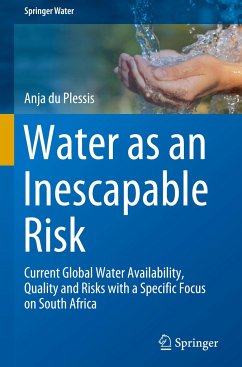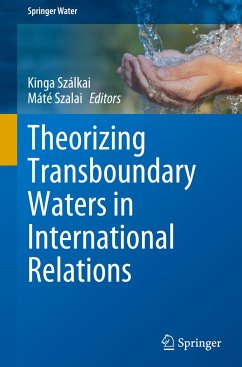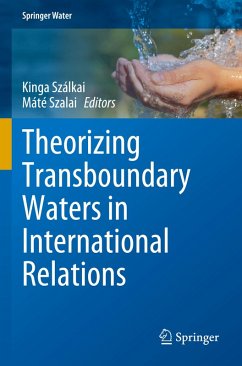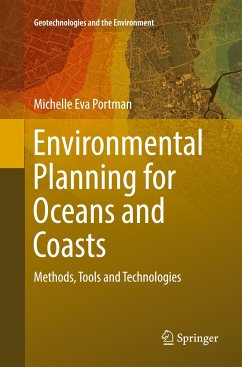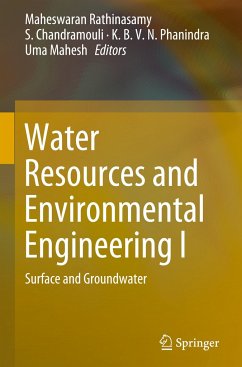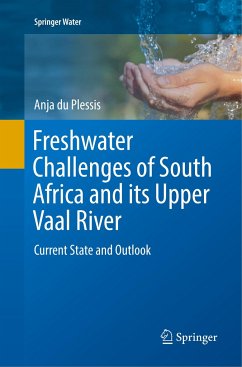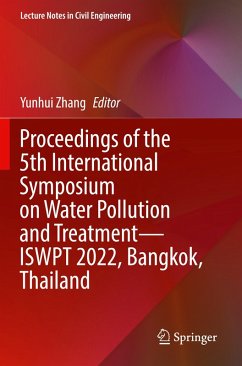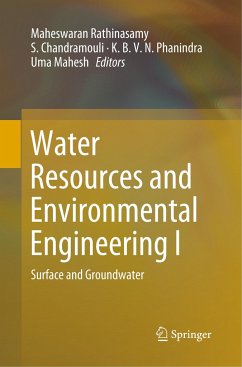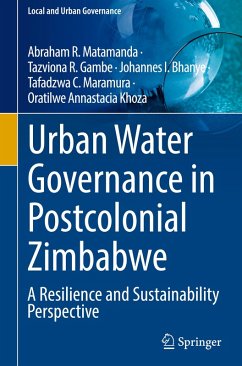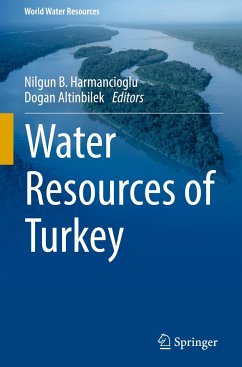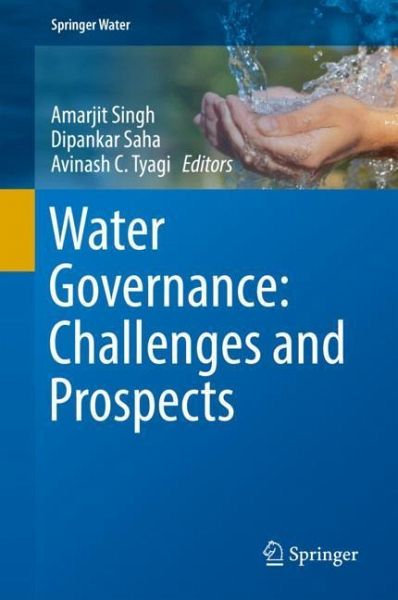
Water Governance: Challenges and Prospects

PAYBACK Punkte
49 °P sammeln!
The book is the first of its kind to deal with almost the entire swath of water resources assessment, development and sustainable management. The idea of the book crystallized during the long journey of the Editors on various facets of water issues in India and abroad during their extended association, at all levels with the Ministry of Water Resources, River Development and Ganga Rejuvenation, as well as International Organizations dealing with water. Currently water-stressed, India is likely to become water scarce in not too distant a future. The global freshwater supply and its sustainable ...
The book is the first of its kind to deal with almost the entire swath of water resources assessment, development and sustainable management. The idea of the book crystallized during the long journey of the Editors on various facets of water issues in India and abroad during their extended association, at all levels with the Ministry of Water Resources, River Development and Ganga Rejuvenation, as well as International Organizations dealing with water. Currently water-stressed, India is likely to become water scarce in not too distant a future. The global freshwater supply and its sustainable use for human consumption, and conservation of the ecosystem have never come under such a rigorous scrutiny before. The unplanned and reckless exploitation of this precious resource have led to a crisis situation, compounded by a real threat of climate change. This book is, therefore, timely and of particular relevance not only to India but the entire world.
The book contains 20 chapters, beside the lead article by the Editors. The chapters are contributed by the eminent professionals, researchers, academicians and civil society representatives having an in-depth understanding of the issues. The contents of the chapters have been chosen to represent all aspects of water. The assessment of water resources using satellite data and in-depth analyses of groundwater sector like, the Aquifer Mapping Programme initiated by Government of India, application of gravity satellite data to assess the resource build up, artificial recharge of aquifers and its contamination, are dealt with by eminent experts. The articles on sustainable management of water through good governance by community participation and involvement of civil society are placed. Flood management both through a basin level approach as well as by building resilience in vulnerable areas is discussed. Other critical issues like water bodies management, constitutional provisions, water governance andfinancial issues, hydro-power and need of research and development in this sector are also dealt with aptly. In view of emerging crisis and complexities in this sector the future pathways and the paradigm shift that is required in administrative and policy level is also discussed.
The book contains 20 chapters, beside the lead article by the Editors. The chapters are contributed by the eminent professionals, researchers, academicians and civil society representatives having an in-depth understanding of the issues. The contents of the chapters have been chosen to represent all aspects of water. The assessment of water resources using satellite data and in-depth analyses of groundwater sector like, the Aquifer Mapping Programme initiated by Government of India, application of gravity satellite data to assess the resource build up, artificial recharge of aquifers and its contamination, are dealt with by eminent experts. The articles on sustainable management of water through good governance by community participation and involvement of civil society are placed. Flood management both through a basin level approach as well as by building resilience in vulnerable areas is discussed. Other critical issues like water bodies management, constitutional provisions, water governance andfinancial issues, hydro-power and need of research and development in this sector are also dealt with aptly. In view of emerging crisis and complexities in this sector the future pathways and the paradigm shift that is required in administrative and policy level is also discussed.





